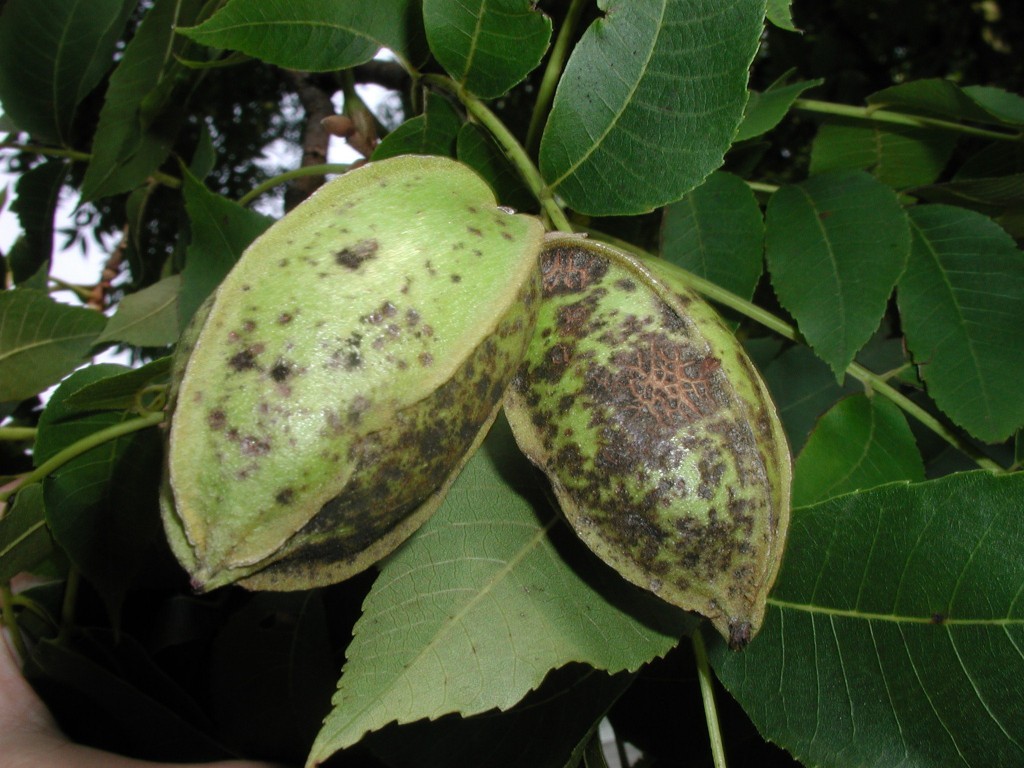By Clint Thompson

Fungicide spray programs to protect pecan trees from scab disease vary from variety to variety. Growers in Alabama and Georgia should never consider a blanket program, says Lenny Wells, University of Georgia Extension pecan specialist.

“We grow so many different varieties in Georgia that it’s really counter-productive that we come out with a blanket program. It really has to be tailored to the variety they’re growing and the location they’re growing,” Wells said.
Low input cultivars, like Elliot, Excel and Lakota, have a very high degree of pecan scab resistance and require a bare minimum of three fungicide sprays. High input cultivars, like Desirable and Pawnee, have little to no degree of scab resistance and require at least 10 sprays, if not more.
Wells stresses that there are other factors that will contribute to a producer’s decision whether to spray or not.
“If it’s Desirable or Pawnee or a highly susceptible variety like that, then yes, once you start, stay on it. But if it’s something like a Sumner or some of these more moderately susceptible varieties, you can wait,” Wells said. “Some varieties like Sumner are not nearly as far out (either) at this point as others like Desirables are. You need to weigh all of that. Is there enough foliage out yet to worry about spraying? If so, does the weather conditions dictate that I need to spray?”
Growers had to spray consistently last year amid persistent rainfall during the growing season. They may catch a break this year as dry weather appears to be in the forecast for the next couple of weeks, according to weather.com.
“Most growers are going to start roughly a couple of weeks after bud break. The rule of thumb is once you start then it’s every two weeks. With some varieties, you’ve got a little more cushion there to where you can spread it out more,” Wells said. “Certainly, if the weather cooperates, you can definitely spread it out and not have to spray so much, especially early on.”










